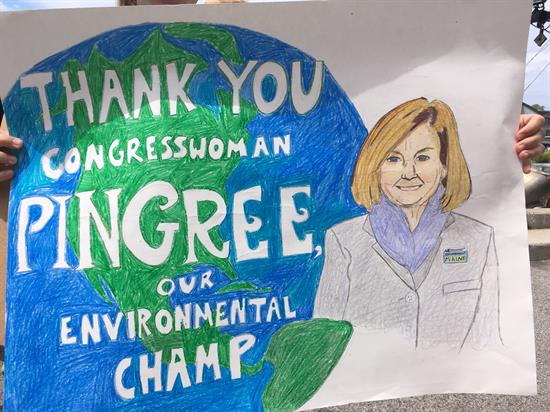Press Releases
Pingree Backs Bill to Help Maine’s Island Communities Use Renewable Power, Become Energy Independent
Washington,
October 20, 2020
Tags:
Energy and Environment
Congresswoman Chellie Pingree (D-Maine) today joined 23 of her House colleagues in introducing the Energy Resilient Communities Act, legislation to create a new program at the US Department of Energy to invest in clean energy microgrids. The legislation also prioritizes clean energy equity and resilience, helping to power the critical infrastructure that communities rely on in the aftermath of an extreme weather event or power disruption. “Electricity is critical infrastructure but isn’t always reliable for every Mainer. Many communities operate as standalone microgrids, separate from the larger energy supply, but too often these microgrids are powered at least in part by burning fossil fuels and are vulnerable to outages during intense winter storms,” said Pingree. “I’m an original cosponsor of the Energy Resilient Communities Act because increasing investments in our nation’s clean energy microgrids will help make energy more reliable and will reduce both greenhouse gas emissions and high energy costs—a win-win for our environment and our wallets. I’m always proud to support legislation that furthers the fight against climate change and builds the clean energy economy.”
In 2019, 546 microgrids were installed in the United States. Of these, 86% were powered in part by burning fossil fuels. The Energy Resilient Communities Act will accelerate the development of clean energy microgrids across the country in order support our transition to clean energy. The bill will help to launch the clean energy revolution in communities across the country while simultaneously bolstering the resilience of critical community infrastructure. It authorizes technical assistance as well as grants to assist with project implementation and construction for clean energy microgrids to support hundreds of new projects a year and prioritizes these microgrids and their environmental and clean energy jobs benefits for environmental justice communities. Maine’s island communities could especially benefit from the Energy Resilient Communities Act. These communities pay some of the highest energy costs in the nation, due to expensive infrastructure to connect to the mainland grid or the cost of importing fuels year round. Microgrids create the opportunity to both reduce greenhouse gas emissions and high energy costs. In addition, microgrids could increase the resiliency of any community with vulnerable electricity supply, such as Maine’s many peninsulas or islands connected by cable to the mainland.
###
|

